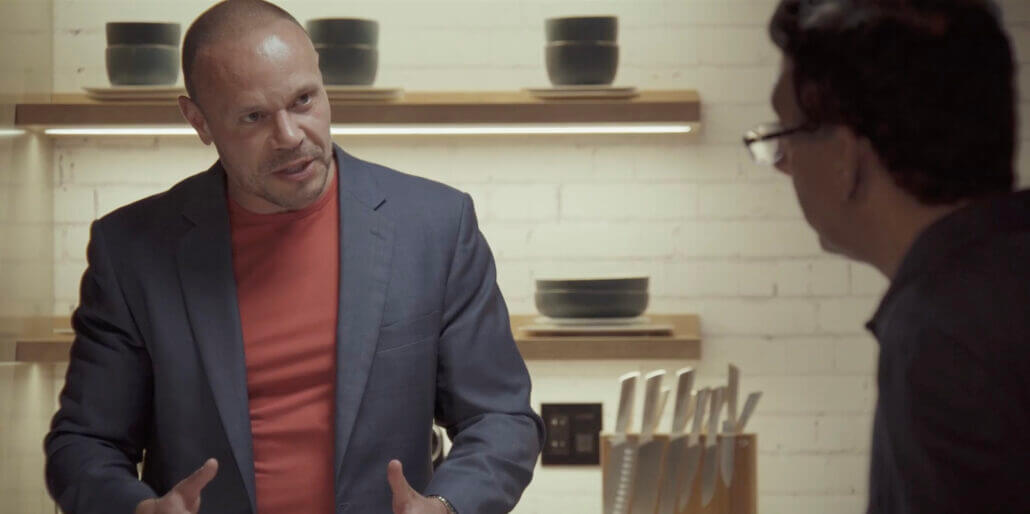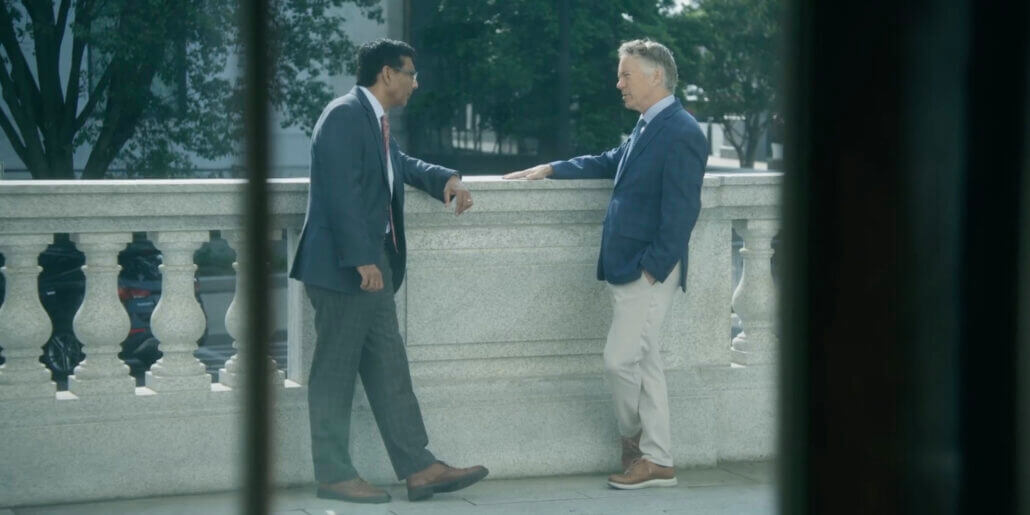American Greatness sat down with filmmaker Dinesh D’Souza for an exclusive interview about his latest film, Police State, which opens in theaters October 23 and 25. Find showings in your area at PoliceStateFilm.com.
Read Part 1 of this series here.

AG: Isn’t the Left accusing President Trump of being an authoritarian and architect of a police state?
DD: With regard to Trump, you have to ask a simple question: What did he do when he was president that was dictatorial?
What police state action did Trump, in fact, take?
For example, are there leading members of the opposition that he had arrested, and let’s say brought up under trumped up charges? No.
Did he advance regimes of censorship that are characteristic of a police state? No.
Did he try to establish a one party state, which is what most police states are? No.
Did he criminalize dissent? Did he, for example, go after Michael Moore and say, here’s a liberal filmmaker, let me put the IRS on him, let me find something that he did, whatever it is, throw the guy in jail? No.
How can Trump be the dictator that the Left alleges when he didn’t even control these police agencies of government in his own administration?
The line I use in the film, of course, is that Trump isn’t running the police agencies of the government. He’s running away from them.
And right there, it gives you a clue that Trump is not running the police state.
AG: The premiere of this movie comes a few weeks after outgoing Chair of the Joint Chiefs, Gen. Mark Milley, took some jabs at Donald Trump by referring to a “wannabe dictator.” Doesn’t that go to the heart of one of the themes of the movie — that the Left accuses Trump of being “authoritarian” and yet, if Trump truly was a dictator, Milley wouldn’t have been allowed to keep his job?
DD: Well, think about it. What, what did Trump do in his interactions with Milley that were, in the slightest respect, dictatorial?
And, by contrast, what did Milley do from his position?
So apparently, according to an in-depth article in the Atlantic Monthly, Milley had gotten some information that the Chinese were worried that the U.S. might launch a surprise attack.
Now let’s say that’s true. Milley’s job is then to take that information and go to Trump and say, listen, the Chinese are evidently worried about this.
He doesn’t do this. He keeps the information to himself. In fact, he calls up his Chinese equivalent and tells him that if it is the case that the U.S. were launching a surprise attack, he, Milley, would make sure that it was not a surprise attack at all because he would tip off his Chinese equivalent that the attack was coming.
Now, I mean, think about this.
Trump evidently got into some hot water and provoked some screams when he said that in the old days, this would be treason punishable by death. Now Trump didn’t call for, you know, the death of Milley, but rather this was Trump saying that our society has become so soft that it doesn’t take these things as seriously as it once did.
I think Trump is quite right about that.
Imagine if Abraham Lincoln had discovered that the top general of the Union was in secret communication with Jefferson Davis or with Robert E. Lee, and told him there’s an attack that we’re planning in Gettysburg, “but don’t worry, I’ll give you the heads up before our troops attack.”
Lincoln would’ve called for that guy to be court martialed immediately.
So I don’t think that Trump is wrong in saying that the person acting as a wannabe dictator isn’t one Donald J. Trump, but is, in fact, General Milley.

AG: Despite the Left accusing Trump of being the architect of the police state, in the film you actually detail the genealogy of the current police state as really beginning in the post-911 world of the Bush Administration.
DD: The bitter irony of the story of the police state is that a lot of Republicans in the aftermath of 9-11, me included, were supportive of giving the U.S. government police powers, expanded police powers, in order to go after the foreign terrorists.
And we thought that these powers could be aimed and directed at these Islamic radicals; at these people who were trying to blow up our buildings and maybe our airports and our ports.
Little did we realize, and there were some, like Rand Paul and Ron Paul, who warned us that, listen, when you give the government this kind of terrifying power, you have no automatic guarantee that it won’t then be used against other people, including you.
And so what a tragic irony that the very people, the very Republicans and conservatives who cheered the Patriot Act, supported Bush, said, yeah, we have to do this, now find themselves classified as the new equivalent of ISIS and Al-Qaeda and are finding those same powers being deployed against them.
So I think it has caused a profound reassessment of whether it was wise in the first place to give the government this kind of power.
In Part 3 of our Q&A with Dinesh, we discuss the “line between freedom and tyranny” that is within each of us, and more…
